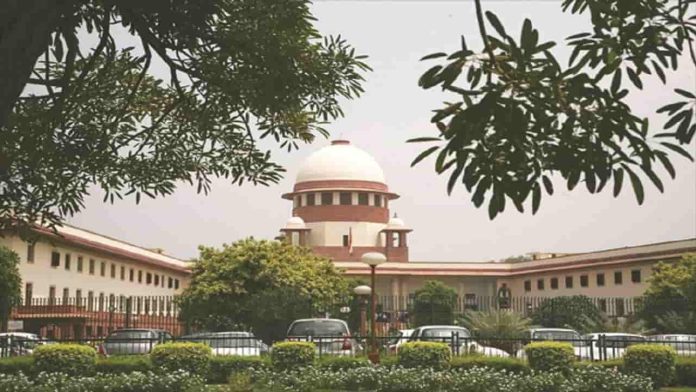The Supreme Court on Thursday expressed its strong displeasure on a petition filed by a married woman seeking medical termination of more than 24 weeks pregnancy, noting that if such a plea was allowed, it would open the doors of the Apex Court to parents who get ‘cold feet’ at the last minute.
The counsel representing the petitioner apprised the Apex Court that the mother of two children was suffering from Lactational Amenorrhea and post-partum depression and hence, the couple was not in a position to raise a third child.
The Bench of Justice Hima Kohli and Justice B.V. Nagarathna directed the constitution of a medical board by All India Institute of Medical Sciences (AIIMS) to assess the medical condition of the petitioner.
It directed the woman to remain present before the medical board on October 6 and listed the matter for further consideration on October 9.
While issuing notice on the petition, the Bench initially expressed its disinclination to entertain the plea, observing that the conception was voluntary. It said there was a stark distinction between a forced pregnancy as a result of assault and a voluntary pregnancy.
The top court of the country noted that the child was voluntarily conceived by the parents and suddenly they got cold feet. It asked the counsel representing the petitioner, what would he do in such a circumstance.
The counsel responded that the petitioner came to know about her pregnancy belatedly.
The top court of the country questioned the petitioner as to how, being a married lady with two children, the petitioner did not realise that she missed her period for five months and could be pregnant.
The Apex Court noted that it owed a duty to law, the state and to that precious life, which was yet to be born. It said the couple should have been cautious, not just the petitioner.
The Counsel for the petitioner apprised the Bench that since she was under psychiatric treatment and taking medication, she apprehended that the child born may not be ‘normal’. However, the top court of the country said that from the medical records produced before it, the scans did not show any anomaly.
It further questioned the petitioner as to why she did not approach the Delhi High Court under Article 226.
Noting that someone from Kerala or Karnataka would not have come straight to the Supreme Court under Article 32 for this, the Apex Court said the woman was taking advantage of the fact that she was in Delhi.


